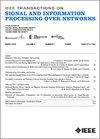从缓慢变化的非平稳过程中进行因果推理
IF 3
3区 计算机科学
Q2 ENGINEERING, ELECTRICAL & ELECTRONIC
IEEE Transactions on Signal and Information Processing over Networks
Pub Date : 2024-04-12
DOI:10.1109/TSIPN.2024.3375594
引用次数: 0
摘要
按照受限结构因果模型(SCMs)框架从观测数据中进行因果推断,主要取决于数据生成机制中因果关系的不对称性,如非高斯性或非线性。这种方法可适用于静态时间序列,但从非静态时间序列中推断因果关系仍是一项具有挑战性的任务。在这项工作中,我们通过时变滤波器和静态噪声提出了一类新的受限单片机,并利用非静态的非对称性在二元和网络环境中进行因果识别。我们利用对缓慢变化过程的双变量演化谱的强大估计,提出了高效的程序。我们对涉及高阶和非平稳滤波器的各种合成和真实数据集进行了评估,以证明我们提出的方法的有效性。本文章由计算机程序翻译,如有差异,请以英文原文为准。
Causal Inference From Slowly Varying Nonstationary Processes
Causal inference from observational data following the restricted structural causal models (SCMs) framework hinges largely on the asymmetry between cause and effect from the data generating mechanisms, such as non-Gaussianity or non-linearity. This methodology can be adapted to stationary time series, yet inferring causal relationships from nonstationary time series remains a challenging task. In this work, we propose a new class of restricted SCM, via a time-varying filter and stationary noise, and exploit the asymmetry from nonstationarity for causal identification in both bivariate and network settings. We propose efficient procedures by leveraging powerful estimates of the bivariate evolutionary spectra for slowly varying processes. Various synthetic and real datasets that involve high-order and non-smooth filters are evaluated to demonstrate the effectiveness of our proposed methodology.
求助全文
通过发布文献求助,成功后即可免费获取论文全文。
去求助
来源期刊

IEEE Transactions on Signal and Information Processing over Networks
Computer Science-Computer Networks and Communications
CiteScore
5.80
自引率
12.50%
发文量
56
期刊介绍:
The IEEE Transactions on Signal and Information Processing over Networks publishes high-quality papers that extend the classical notions of processing of signals defined over vector spaces (e.g. time and space) to processing of signals and information (data) defined over networks, potentially dynamically varying. In signal processing over networks, the topology of the network may define structural relationships in the data, or may constrain processing of the data. Topics include distributed algorithms for filtering, detection, estimation, adaptation and learning, model selection, data fusion, and diffusion or evolution of information over such networks, and applications of distributed signal processing.
 求助内容:
求助内容: 应助结果提醒方式:
应助结果提醒方式:


